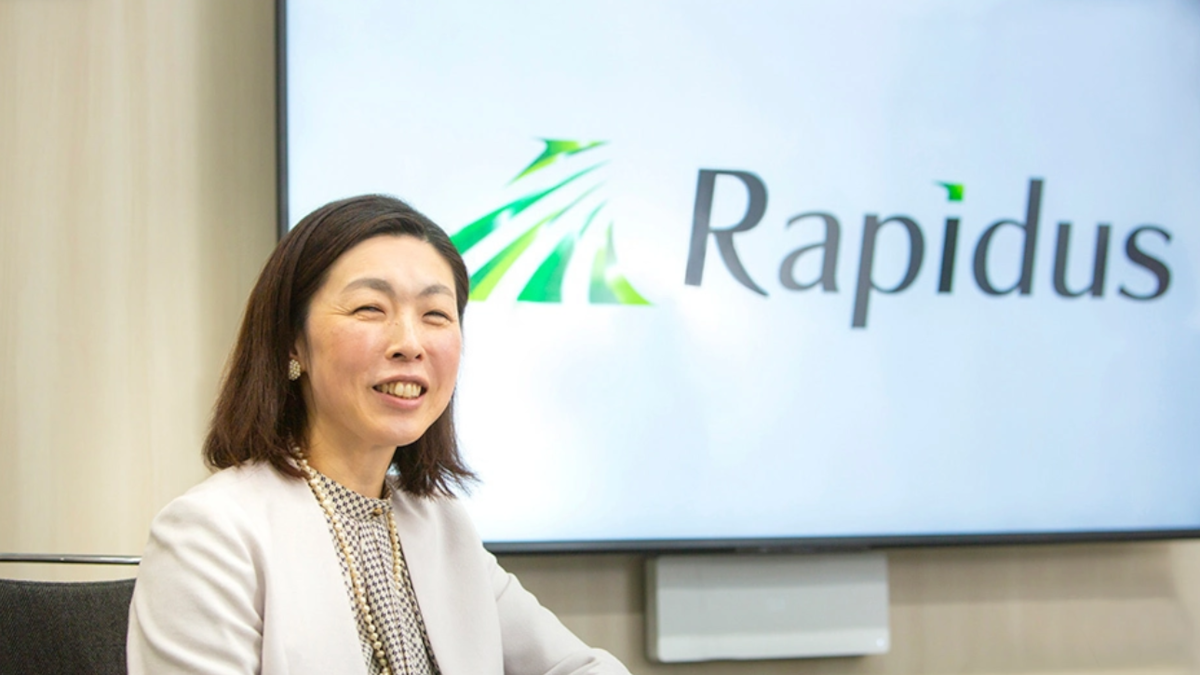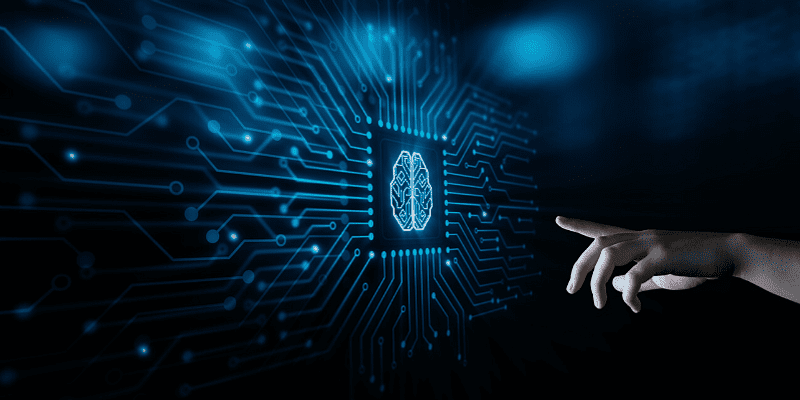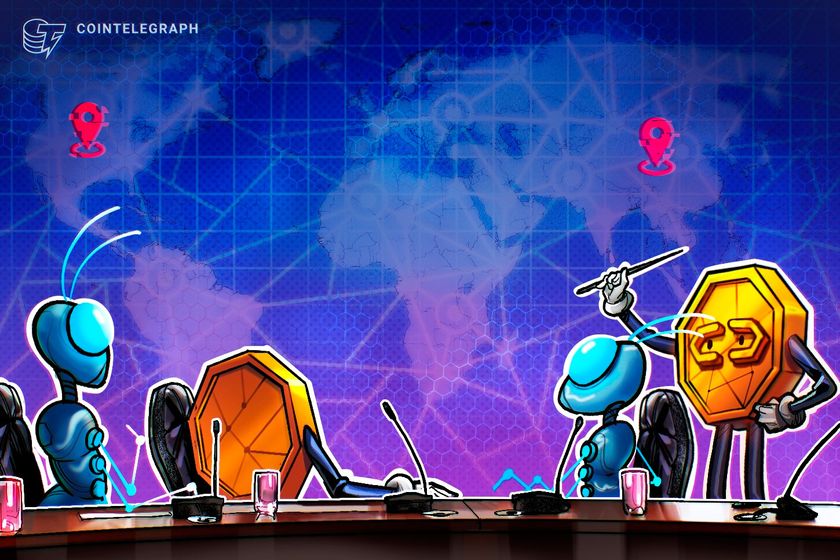KI-Nachrichten Deutschland Q1 2025: Revolutionizing Society Through AI – An In-Depth Exploration
Abstract This post explores the dramatic advances in artificial intelligence in Germany during Q1 2025 and examines whether AI is revolutionizing society or has reached its limitations. Drawing on the original article KI-Nachrichten Deutschland Q1 2025: Revolutioniert Künstliche Intelligenz die Gesellschaft oder stößt sie an Grenzen?, we dive into the background of AI in Germany, review major trends and projects—from Google's personalized search and autonomous agents to industrial applications—and discuss regulatory, ethical, and technical challenges. We also consider future outlooks, innovative funding models via blockchain, and the integration of open-source funding, linking to authoritative sources and practical examples. This post is designed to be both technical and accessible, offering a deep dive into the fast-evolving AI domain in Germany. Introduction Artificial intelligence (AI) has become one of the most transformative forces in modern society. In Germany, the first quarter of 2025 has seen groundbreaking developments—from AI-powered search engines to autonomous agents in everyday applications. As outlined in the original KI-Nachrichten Deutschland Q1 2025 article, the transformative potential of AI is clear. In this post, we discuss why AI matters, its historical context, key projects, and the challenges that accompany these exciting innovations. We also highlight the interplay between AI and emerging trends such as blockchain for cybersecurity and open-source funding models. Background and Context A Brief History of AI in Germany Germany has long been a hub for technological innovation. Institutions like the Deutsches Forschungszentrum für Künstliche Intelligenz (DFKI) have been pioneering research in AI. Over the past decades, Germany’s robust industrial base and strong academic environment have cultivated advancements in areas such as natural language processing, robotics, and intelligent processes for manufacturing. Q1 2025 marks a critical moment when innovations like Google’s personalized search and the deployment of autonomous agents in everyday life begin to change how technology interacts with society. Definitions and Ecosystem Overview Artificial Intelligence (AI) refers to systems that mimic cognitive functions such as learning, problem solving, and decision making. In the current ecosystem, AI is utilized in: Autonomous Agents: Examples include self-directed digital assistants and robotics that manage everyday tasks. Hyperpersonalization: Systems that tailor data and experiences to individuals, as seen in Google’s latest AI-powered search. Industrial Automation: Companies like Siemens employ AI for optimized and autonomous production management. At the same time, regulatory bodies such as the Bundesregierung (German Federal Government) are pushing new ethical and legal frameworks to ensure the responsible deployment of AI. The Role of Blockchain and Open-Source Funding Emerging funding and security models are also tying into the AI revolution. For example, integrating blockchain technology into AI systems can boost security and transparency. Articles on blockchain and cybersecurity as well as blockchain and AI elaborate on how decentralized methods add robustness to technologically advanced ecosystems. Additionally, open-source funding and sponsorship models are accelerating development by providing financial support to innovators—topics explored in recent developer posts on dev.to, such as License Token Revolutionizing Open Source Licensing and Open Source Funding Success Stories. Core Concepts and Features 1. Revolutionizing Society with Autonomous AI Agents Autonomous AI agents are transforming daily interactions. For example: Telecom Innovations: The Telekom has launched autonomous language assistants that ease everyday communication. Research & Development: The DFKI’s work on autonomous robotics illustrates how guided AI agents are stepping beyond industrial confines and becoming everyday helpers. 2. Hyperpersonalization and AI-Enhanced Search Google’s latest AI-powered search, covered by Tagesschau, delivers personalized, succinct answers instead of overwhelming search lists. This trend underscores a shift in how consumers receive information online and highlights a move towards tailored digital experiences. 3. Industrial and Administrative Innovations Companies such as Siemens are incorporating AI for autonomous production control while governmental agencies test AI-driven administrative solutions. This application not only boosts efficiency but also democratizes access to high-quality services. Example: The Bundeskanzleramt’s pilot projects use AI to cut through excessive bureaucracy, a trend with potentially widespread social implications. 4. Integration of Ethical and Regulatory Guidelines The spread of AI brings concerns over
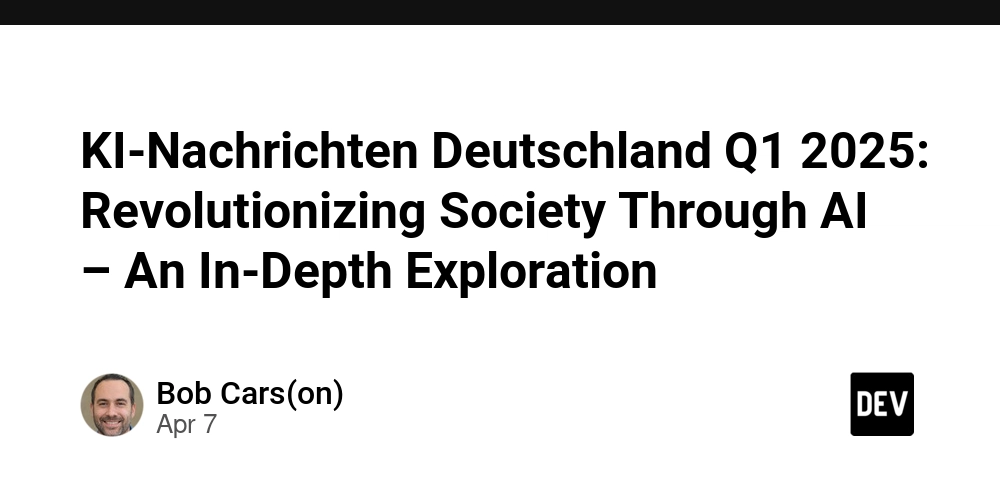
Abstract
This post explores the dramatic advances in artificial intelligence in Germany during Q1 2025 and examines whether AI is revolutionizing society or has reached its limitations. Drawing on the original article KI-Nachrichten Deutschland Q1 2025: Revolutioniert Künstliche Intelligenz die Gesellschaft oder stößt sie an Grenzen?, we dive into the background of AI in Germany, review major trends and projects—from Google's personalized search and autonomous agents to industrial applications—and discuss regulatory, ethical, and technical challenges. We also consider future outlooks, innovative funding models via blockchain, and the integration of open-source funding, linking to authoritative sources and practical examples. This post is designed to be both technical and accessible, offering a deep dive into the fast-evolving AI domain in Germany.
Introduction
Artificial intelligence (AI) has become one of the most transformative forces in modern society. In Germany, the first quarter of 2025 has seen groundbreaking developments—from AI-powered search engines to autonomous agents in everyday applications. As outlined in the original KI-Nachrichten Deutschland Q1 2025 article, the transformative potential of AI is clear. In this post, we discuss why AI matters, its historical context, key projects, and the challenges that accompany these exciting innovations. We also highlight the interplay between AI and emerging trends such as blockchain for cybersecurity and open-source funding models.
Background and Context
A Brief History of AI in Germany
Germany has long been a hub for technological innovation. Institutions like the Deutsches Forschungszentrum für Künstliche Intelligenz (DFKI) have been pioneering research in AI. Over the past decades, Germany’s robust industrial base and strong academic environment have cultivated advancements in areas such as natural language processing, robotics, and intelligent processes for manufacturing. Q1 2025 marks a critical moment when innovations like Google’s personalized search and the deployment of autonomous agents in everyday life begin to change how technology interacts with society.
Definitions and Ecosystem Overview
Artificial Intelligence (AI) refers to systems that mimic cognitive functions such as learning, problem solving, and decision making. In the current ecosystem, AI is utilized in:
- Autonomous Agents: Examples include self-directed digital assistants and robotics that manage everyday tasks.
- Hyperpersonalization: Systems that tailor data and experiences to individuals, as seen in Google’s latest AI-powered search.
- Industrial Automation: Companies like Siemens employ AI for optimized and autonomous production management.
At the same time, regulatory bodies such as the Bundesregierung (German Federal Government) are pushing new ethical and legal frameworks to ensure the responsible deployment of AI.
The Role of Blockchain and Open-Source Funding
Emerging funding and security models are also tying into the AI revolution. For example, integrating blockchain technology into AI systems can boost security and transparency. Articles on blockchain and cybersecurity as well as blockchain and AI elaborate on how decentralized methods add robustness to technologically advanced ecosystems. Additionally, open-source funding and sponsorship models are accelerating development by providing financial support to innovators—topics explored in recent developer posts on dev.to, such as License Token Revolutionizing Open Source Licensing and Open Source Funding Success Stories.
Core Concepts and Features
1. Revolutionizing Society with Autonomous AI Agents
Autonomous AI agents are transforming daily interactions. For example:
- Telecom Innovations: The Telekom has launched autonomous language assistants that ease everyday communication.
- Research & Development: The DFKI’s work on autonomous robotics illustrates how guided AI agents are stepping beyond industrial confines and becoming everyday helpers.
2. Hyperpersonalization and AI-Enhanced Search
Google’s latest AI-powered search, covered by Tagesschau, delivers personalized, succinct answers instead of overwhelming search lists. This trend underscores a shift in how consumers receive information online and highlights a move towards tailored digital experiences.
3. Industrial and Administrative Innovations
Companies such as Siemens are incorporating AI for autonomous production control while governmental agencies test AI-driven administrative solutions. This application not only boosts efficiency but also democratizes access to high-quality services.
Example: The Bundeskanzleramt’s pilot projects use AI to cut through excessive bureaucracy, a trend with potentially widespread social implications.
4. Integration of Ethical and Regulatory Guidelines
The spread of AI brings concerns over privacy, data security, and labor impacts. Recent debates reported by sources like heise online underscore the need for strict ethical guidelines. Robust frameworks, such as those outlined by the EU-KI-Verordnung, set new standards for AI implementation and usage.
Applications and Use Cases
Practical Example 1: Industrial AI Automation
Siemens' use of autonomous production technologies provides a stellar example of industrial AI. The integration of AI in production has led to:
- Reduced operational costs and increased efficiency.
- Enhanced quality control, with fewer human errors.
- Dynamic adaptation to production demands in real time. These enhancements help maintain Germany’s competitive edge in global manufacturing.
Practical Example 2: Personalized Digital Experiences
Google’s tailored search algorithms enable hyperpersonalized recommendation systems. This is especially significant in e-commerce sectors, where companies like Zalando use AI-driven personalization for customer retention and satisfaction.
Key factors include:
- Faster query results.
- Customized offers aligned with user interests.
- Reduction in information overload.
Practical Example 3: AI in Public Administration
The Bundeskanzleramt’s use of AI to handle administrative tasks reduces bureaucracy and streamlines service delivery for citizens. This application, enhanced by real-time data and improved processing speeds, shows that effective governance can be achieved with smart AI solutions.
Bullet List: Key Benefits of Autonomous AI Implementation
- Efficiency Gains: Automation speeds up both industrial and administrative workflows.
- Improved Accuracy: Reduced human error through intelligent algorithms.
- Personalization: Tailored user experiences in digital applications.
- Cost Reduction: Long-term savings in operational and labor expenses.
- Enhanced Security: With blockchain integration, data security is improved.
Challenges and Limitations
Ethical and Social Concerns
Despite tremendous promise, AI faces significant challenges:
- Privacy Issues and Data Security: As reported by FAZ and heise online, the high energy consumption of AI processes and data mining activities can compromise user privacy.
- Job Disruption: There are growing concerns about job displacement in industries ranging from manufacturing to administration, as detailed by articles in Welt.
Technical Hurdles
- Hardware Constraints: Hardware issues, including chip shortages as mentioned in the Handelsblatt, can limit the scalability of AI projects.
- Energy Consumption: The significant energy requirements of operating advanced AI models pose sustainability concerns.
- Integration Complexity: Merging AI with existing systems, including blockchain for enhanced security, requires careful technical orchestration.
Adoption and Regulation
- Establishing Trust: Regulatory measures such as the EU-KI-Verordnung are critical to ensure that AI adoption is ethical and fair.
- Ethical Standards: Experts stress the need for robust ethical guidelines to prevent misuse and ensure transparency throughout AI processes.
Future Outlook and Innovations
Q2 and Beyond – What to Expect
Looking next at Q2 2025, several factors will likely shape the future of AI in Germany:
- Enhanced Regulatory Frameworks: Stronger policies will emerge to safeguard privacy and ethical considerations.
- Local Hardware Solutions: Research institutions like Fraunhofer are actively developing energy-efficient models that could mitigate current hardware limitations.
- Expansion in Research Collaboration: Increased partnerships among leading research centers and industries will push the envelope of AI innovation.
- Interoperability and Blockchain Integration: Combining AI with blockchain, as discussed in blockchain and cybersecurity studies, will provide a more secure and robust technical infrastructure.
- Open Source and Community Funding: New platforms and models for open-source funding appear promising. Views from communities such as those highlighted on dev.to point toward a future where models like GitHub Sponsors and blockchain-based compensation will play a central role.
Table: Market Analysis Comparison Q1 2024 vs. Q1 2025
| Metric | Q1 2024 | Q1 2025 | Change | Source |
|---|---|---|---|---|
| Market Size (Billion €) | 8 | 10 | +25% | Gründer.de |
| Siemens Investment (Mio. €) | 400 | 500 | +25% | Siemens |
| Government Investment (Billion €) | 1.2 | 1.6 | +33% | Bundesregierung |
Innovations on the Horizon
- Hybrid Ecosystems: Combining AI with blockchain (see blockchain and AI) promises systems that are not only intelligent but also resilient against cyber threats.
- Sustainable Energy Models: Addressing the energy consumption challenge, innovators are exploring cleaner computing solutions.
- Advanced Collaborative Research: Internationally coordinated research will help develop standards and drive breakthroughs. Contributions from organizations like DFKI are anticipated to accelerate progress.
Summary
In Q1 2025, Germany stands at a crossroads where AI is dramatically reshaping society. With projects ranging from Google’s AI-powered search to autonomous manufacturing systems at Siemens, the benefits of natural language processing, hyperpersonalization, and streamlined administration are evident. However, ethical dilemmas, technical limitations, energy challenges, and regulatory hurdles still pose serious concerns. As we look toward Q2 and beyond, it is clear that successful integration of AI will depend on balancing innovation with attention to social responsibility and sustainability.
Key takeaways include:
- Revolutionary Developments: AI changes daily life and industrial processes, but not without challenges.
- Practical Applications: Digital assistants, personalized search, and streamlined administrations make a compelling case for widespread adoption.
- Challenges Persist: Ethical guidelines, hardware constraints, and energy demands must be addressed.
- Future Innovations: Regulatory frameworks, blockchain integration, and community-driven funding are expected to propel further advancements.
For further reading on these themes, check out the original article on KI-Trends in Germany as well as additional discussions on platforms like Tagesschau and ZDFheute, which provide continual updates on these evolving trends.
As AI continues to evolve, its impact on society, the labor market, and digital infrastructure will only grow. Through smart policies, innovative funding models, and active research collaborations, Germany is well positioned to harness the benefits of AI while mitigating the risks—as exemplified by the dynamic interplay between state initiatives, industrial investments, and open-source community support.
By critically analyzing these trends and challenges, we can appreciate the balancing act that Germany faces in revolutionizing society through AI. The technical innovations, coupled with thoughtful regulation and community-backed funding, ensure that the AI revolution is as sustainable as it is transformative.
Embracing the future of AI means understanding its nuanced challenges while celebrating its enormous potential—thus paving the way for a smarter and more equitable society.
Happy reading, and stay tuned for more updates as we monitor the next chapters in the evolution of AI in Germany!














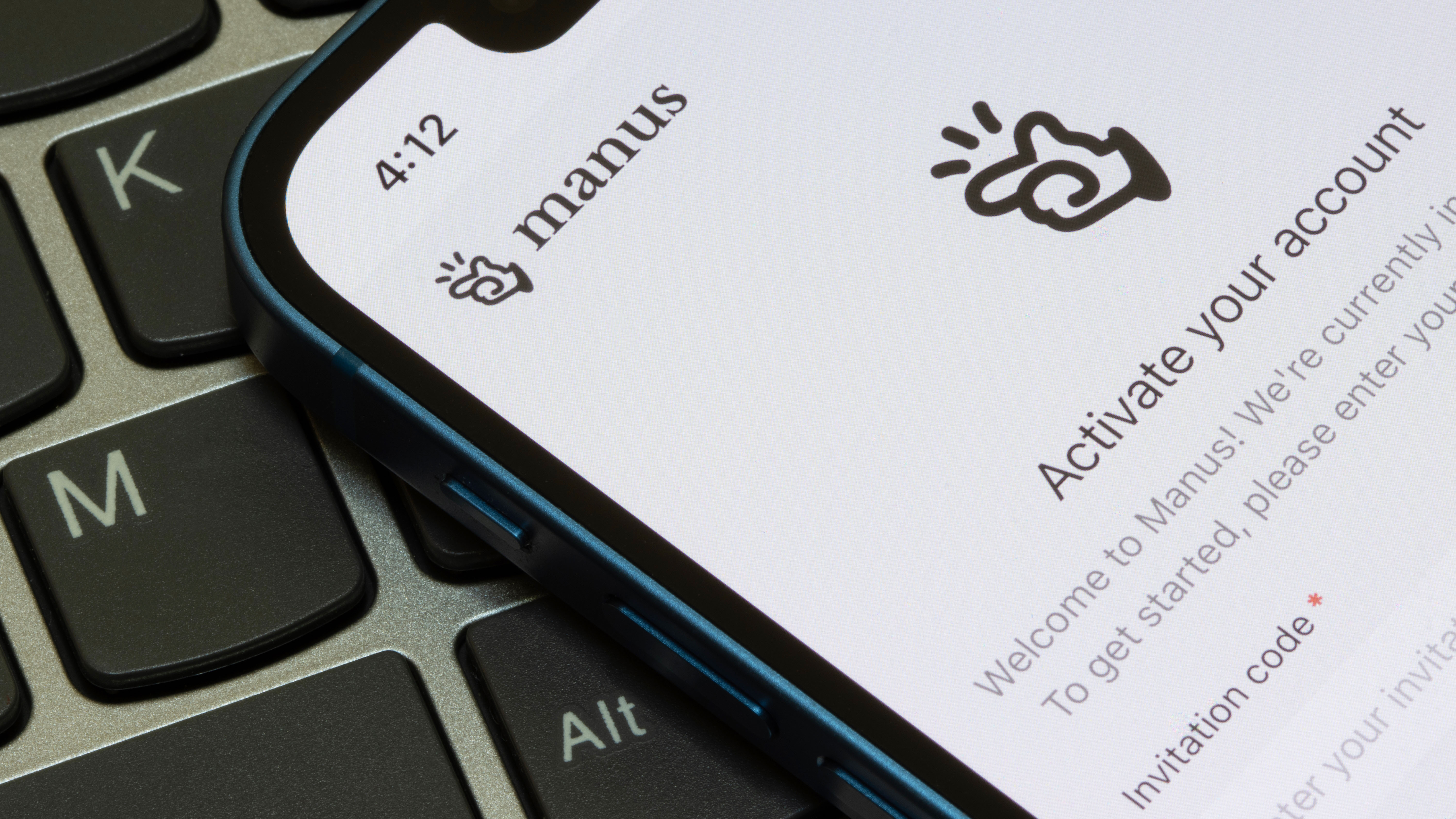








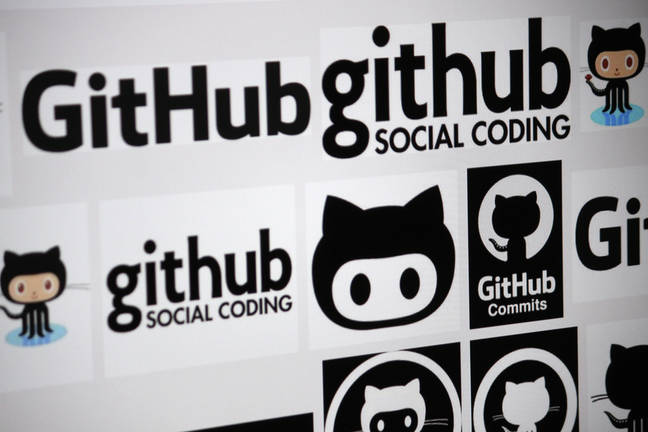


















































































































































![[The AI Show Episode 142]: ChatGPT’s New Image Generator, Studio Ghibli Craze and Backlash, Gemini 2.5, OpenAI Academy, 4o Updates, Vibe Marketing & xAI Acquires X](https://www.marketingaiinstitute.com/hubfs/ep%20142%20cover.png)





























































































































![From drop-out to software architect with Jason Lengstorf [Podcast #167]](https://cdn.hashnode.com/res/hashnode/image/upload/v1743796461357/f3d19cd7-e6f5-4d7c-8bfc-eb974bc8da68.png?#)



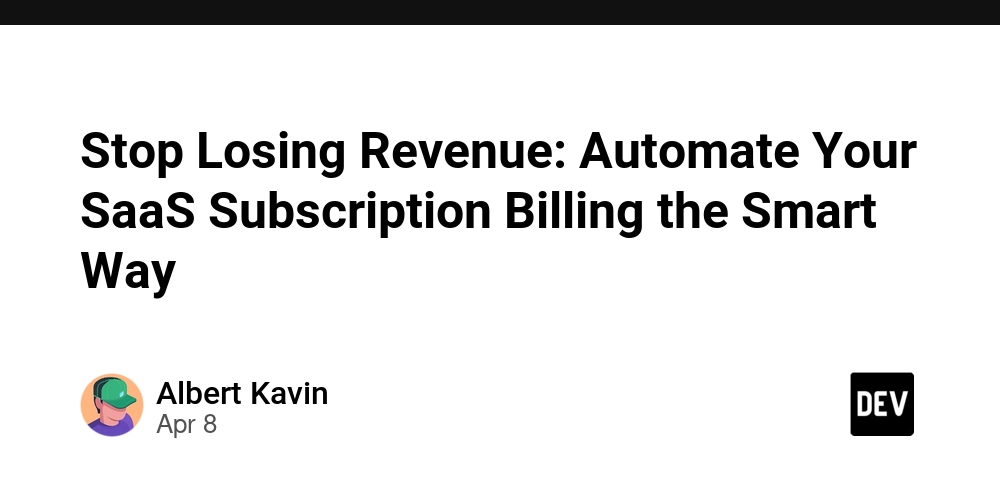











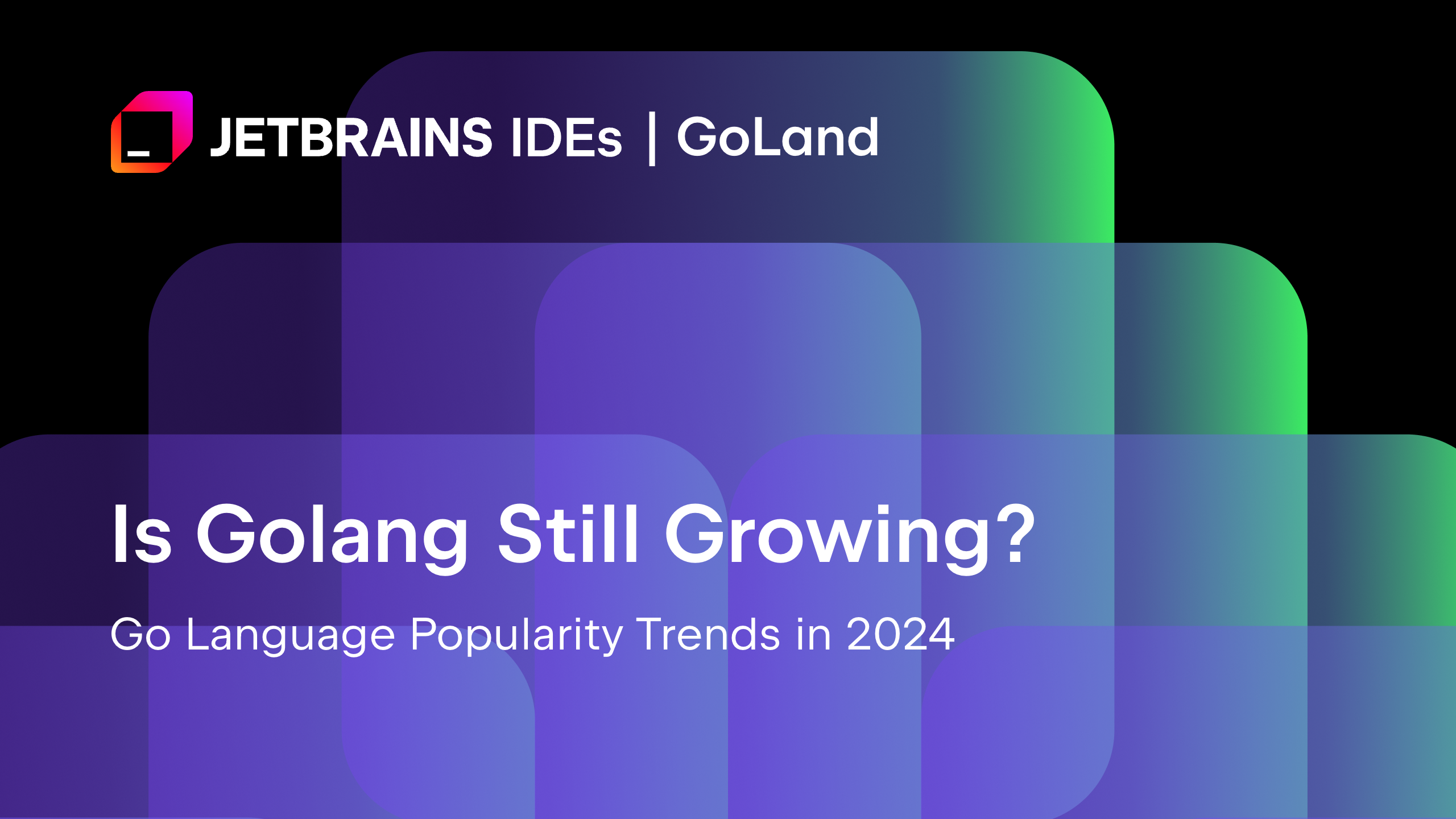





























































































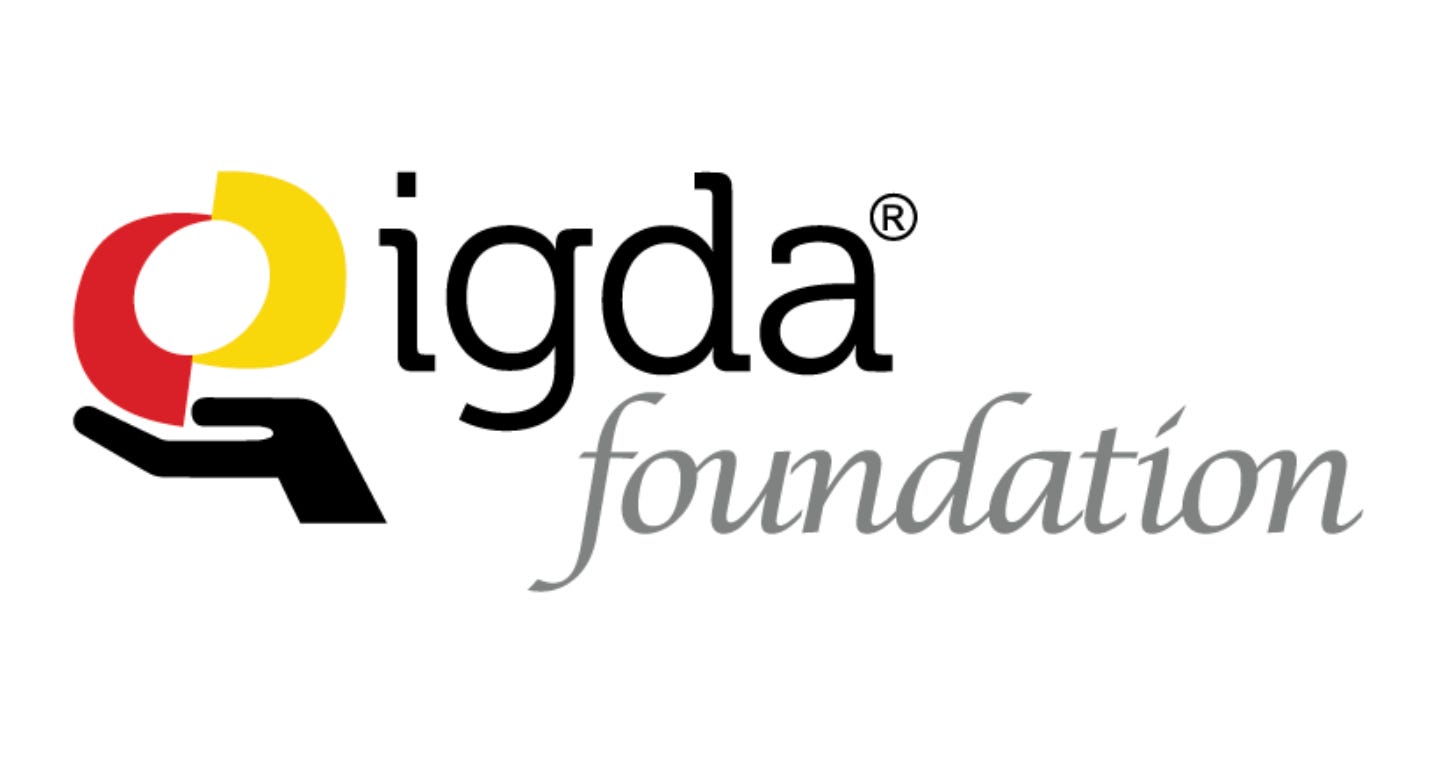

(1).jpg?width=1920&height=1920&fit=bounds&quality=80&format=jpg&auto=webp#)






























_NicoElNino_Alamy.png?#)
.webp?#)
.webp?#)













































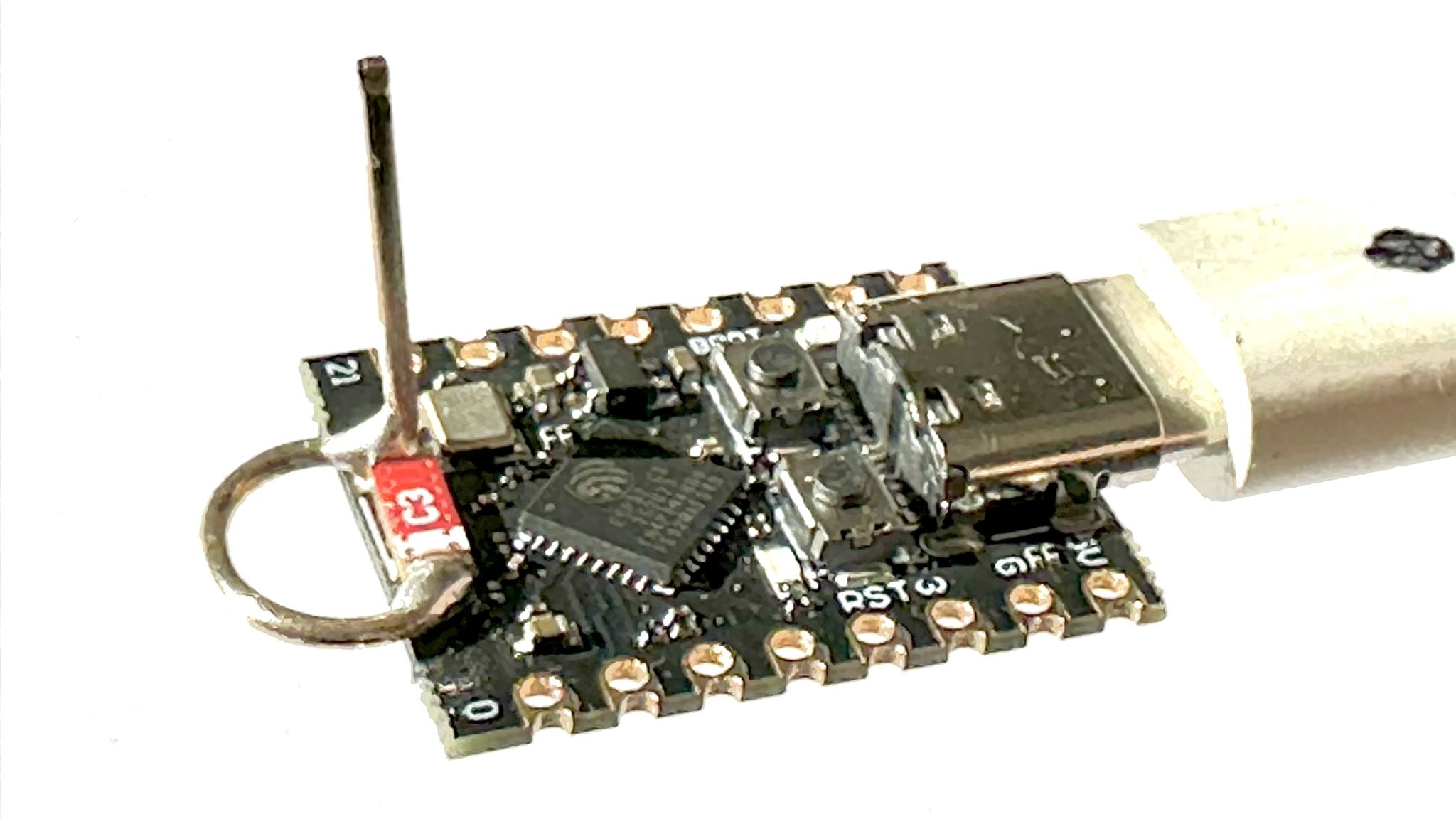
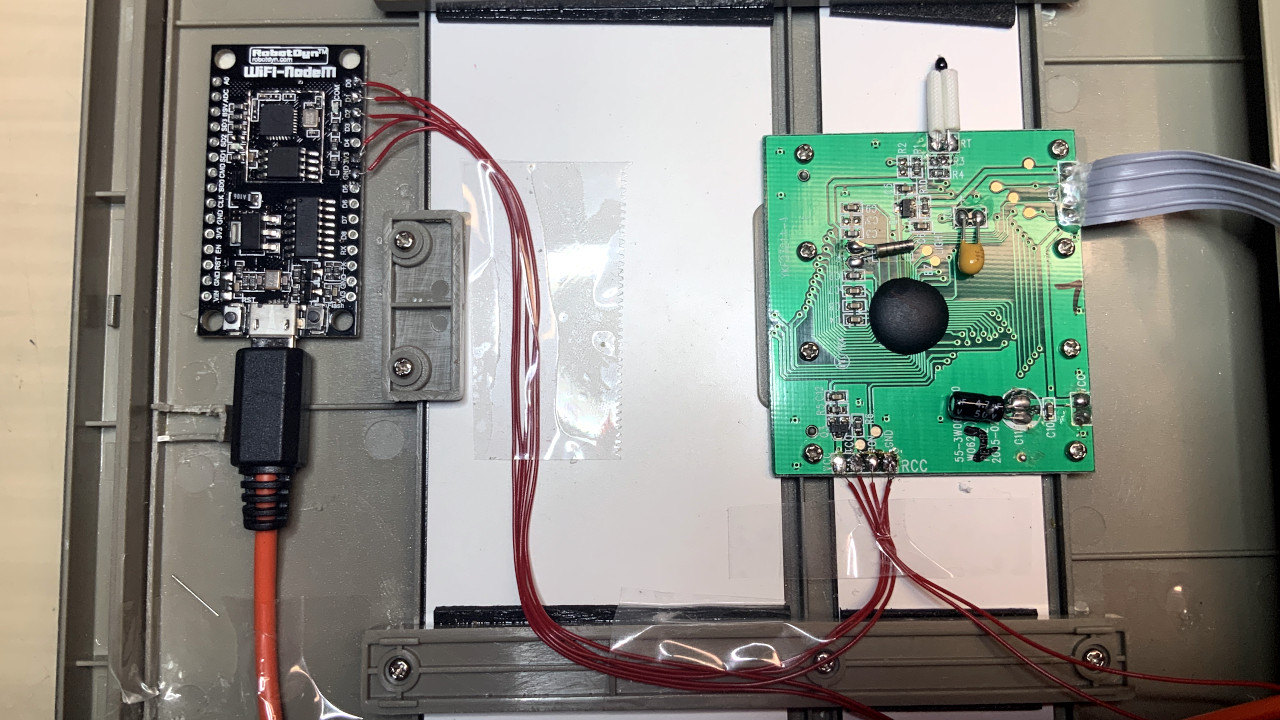























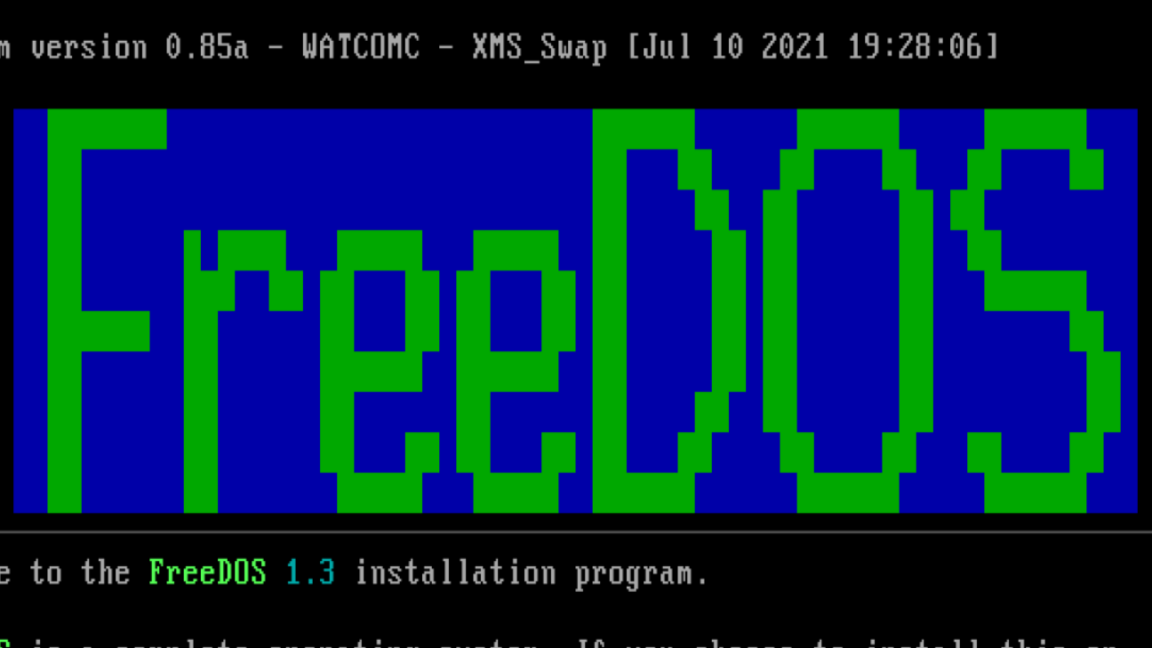























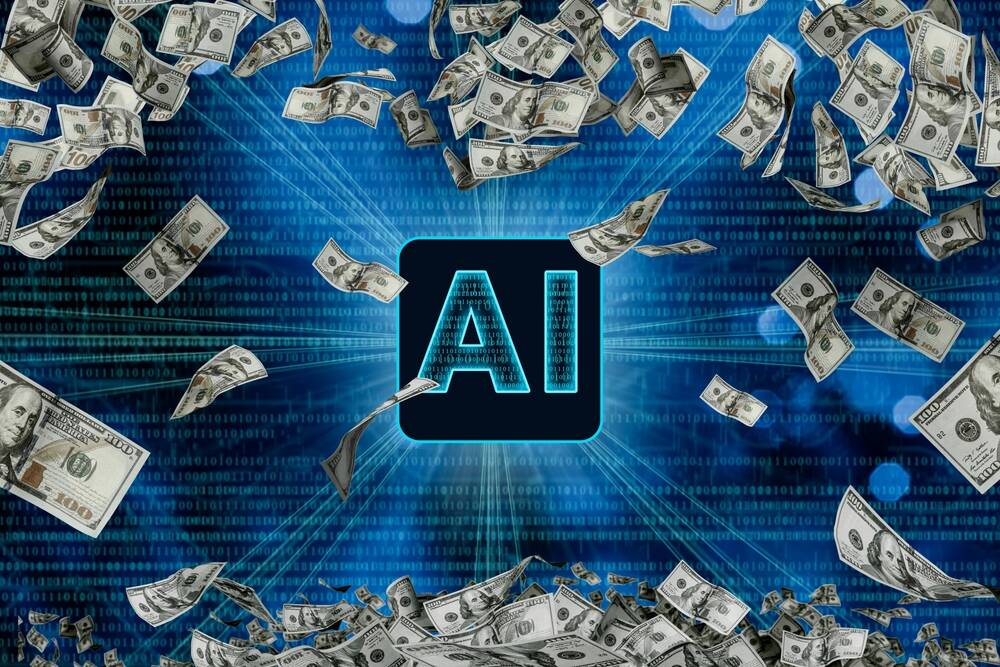

![New iOS 19 Leak Allegedly Reveals Updated Icons, Floating Tab Bar, More [Video]](https://www.iclarified.com/images/news/96958/96958/96958-640.jpg)

![Apple to Source More iPhones From India to Offset China Tariff Costs [Report]](https://www.iclarified.com/images/news/96954/96954/96954-640.jpg)
![Blackmagic Design Unveils DaVinci Resolve 20 With Over 100 New Features and AI Tools [Video]](https://www.iclarified.com/images/news/96951/96951/96951-640.jpg)

















































